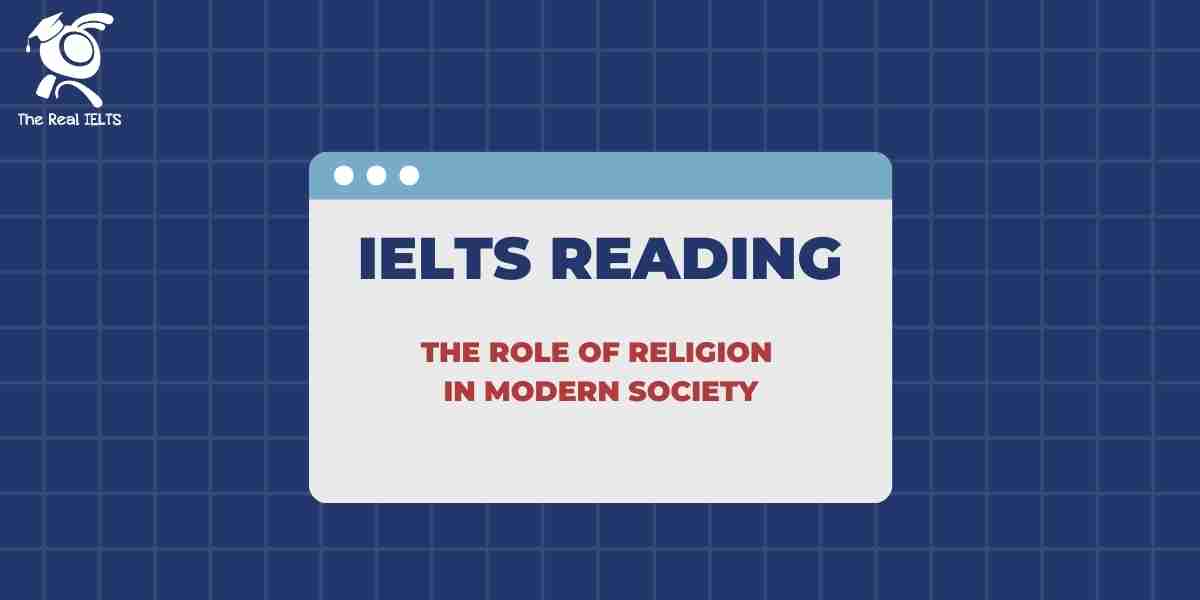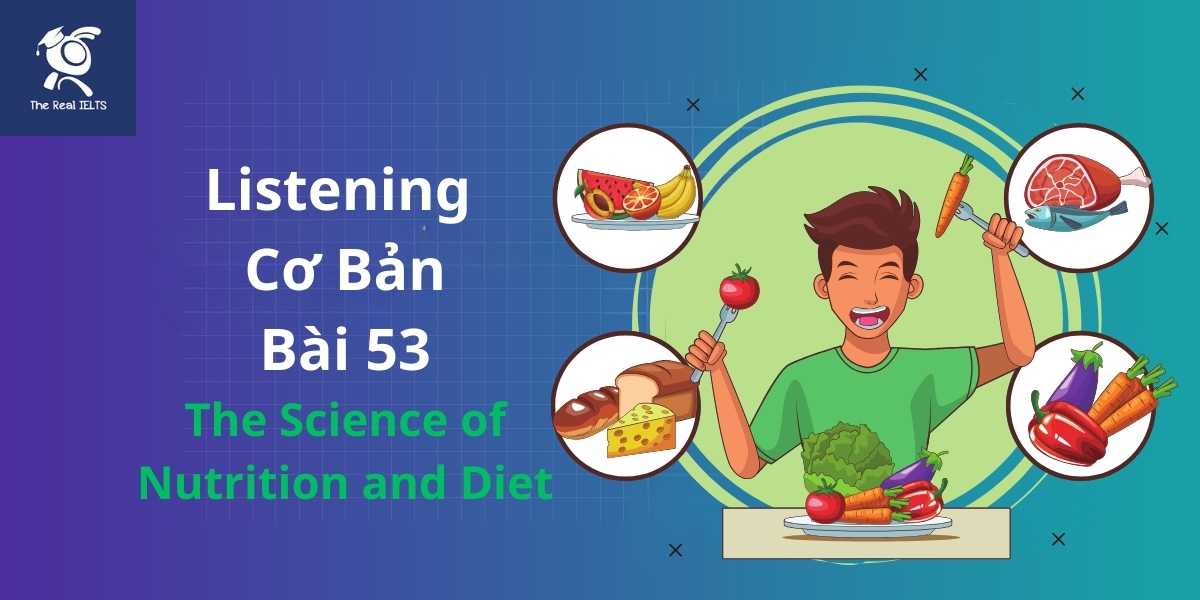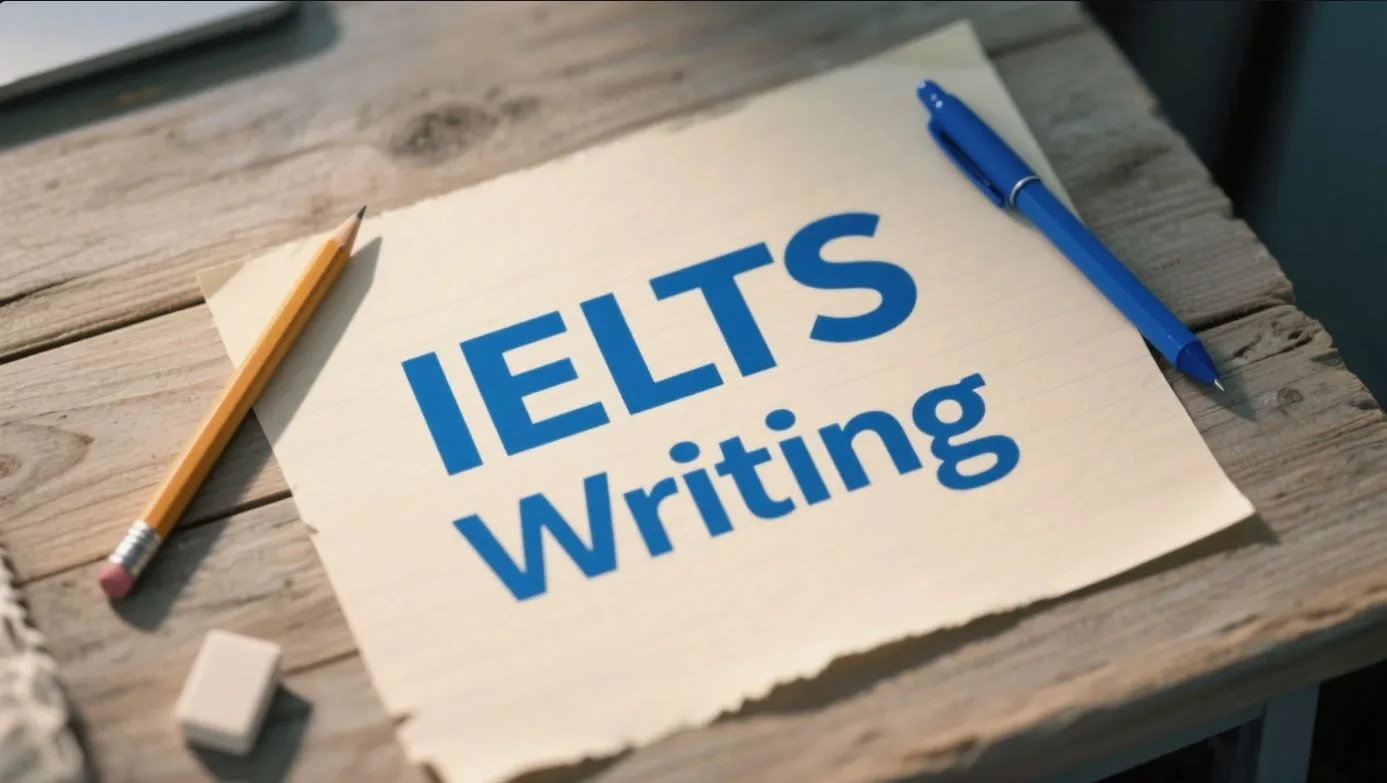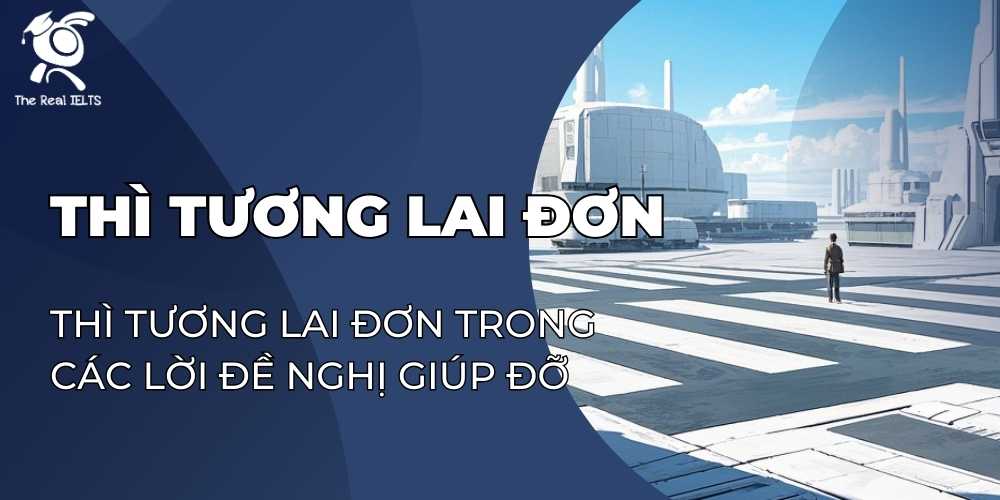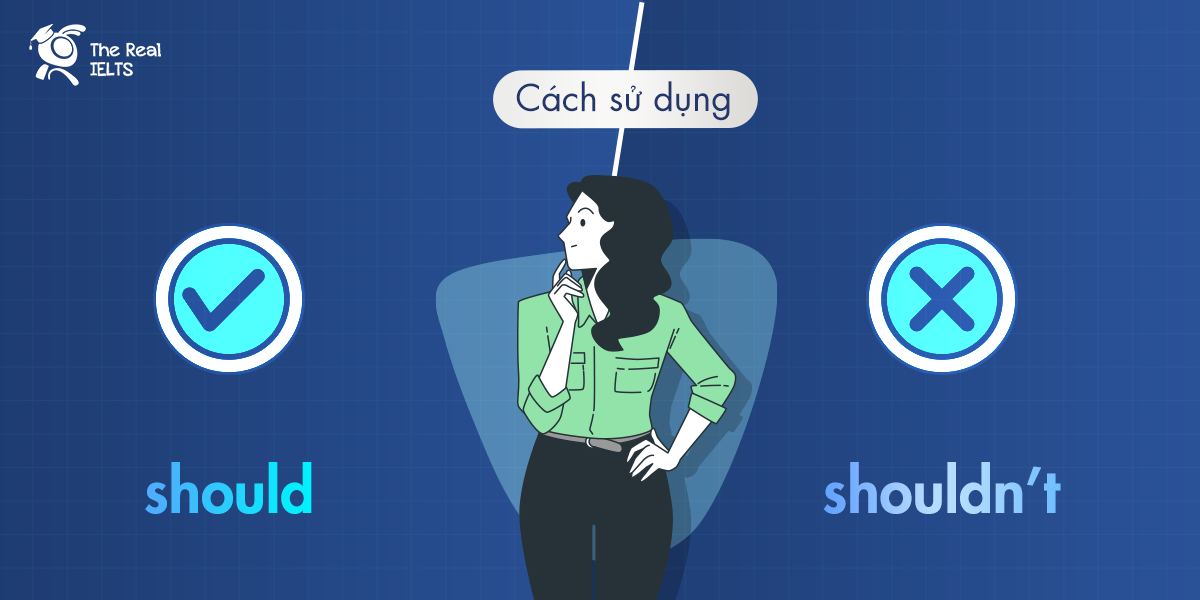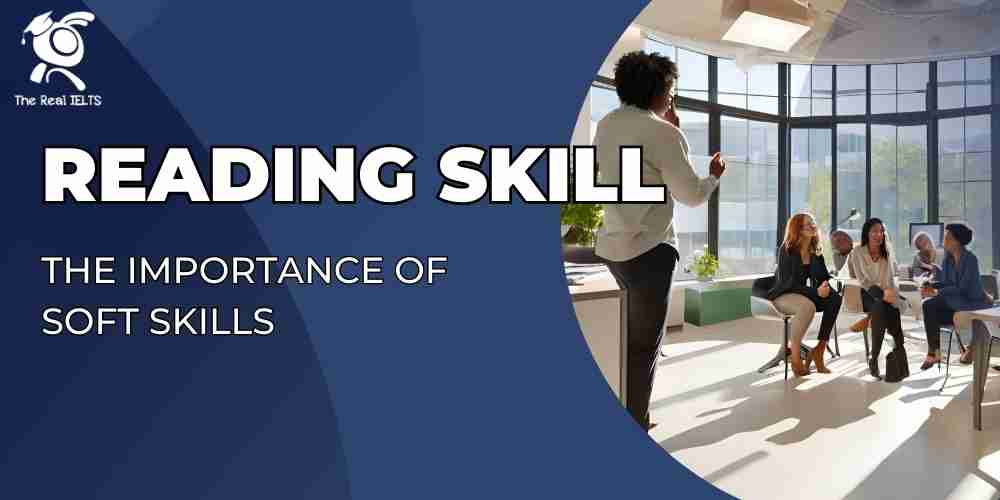Đề thi IELTS Reading có tiêu đề “The Role of Religion in Modern Society”
Nhớ đọc thêm các bài luyện thi IELTS nhé.
IELTS Reading:”The Role of Religion in Modern Society“
The Role of Religion in Modern Society
In the contemporary world, the role of religion continues to be a subject of significant discussion and debate. Despite the advancements in science, technology, and secularism, religion remains an influential force, shaping the values, norms, and practices of societies worldwide. This influence is multifaceted, affecting not only the personal beliefs of individuals but also the broader social, political, and cultural landscapes.
At the personal level, religion provides many individuals with a sense of purpose, identity, and community. For billions of people across the globe, religious beliefs and practices are integral to their daily lives, offering guidance on moral decisions, ethical behavior, and life’s existential questions. Religion often serves as a source of comfort and solace in times of hardship, providing individuals with a framework through which they can understand suffering, death, and the uncertainties of life. This personal aspect of religion underscores its enduring relevance in an age where people increasingly seek meaning and stability in an ever-changing world.
Moreover, religion plays a crucial role in shaping cultural norms and values. In many societies, religious traditions and teachings are deeply embedded in cultural practices and social rituals. These practices often serve to reinforce communal bonds and ensure the transmission of values from one generation to the next. For example, religious festivals, ceremonies, and rites of passage such as weddings, funerals, and coming-of-age rituals often play a central role in the cultural life of a community. Even in highly secular societies, the cultural heritage rooted in religious traditions continues to influence social norms and public holidays.
In the political realm, the role of religion is equally significant, albeit more complex and sometimes controversial. In some countries, religion is closely intertwined with national identity and governance. For instance, in many Islamic countries, Sharia law, derived from religious texts, forms a critical part of the legal system. Similarly, in nations with a strong Christian heritage, religious values often influence political discourse and policy decisions, particularly on issues related to morality, family life, and education.
However, the relationship between religion and politics can also be a source of conflict. In societies where multiple religious groups coexist, tensions can arise over the role of religion in public life, especially when religious beliefs clash with secular laws or the rights of minority groups. In such contexts, the challenge lies in balancing the freedom of religious expression with the need to maintain social harmony and protect the rights of all citizens, regardless of their religious beliefs.
Despite the challenges, religion can also be a force for social cohesion and positive change. Many religious organizations are actively involved in charitable work, providing essential services such as education, healthcare, and disaster relief, particularly in underserved communities. These efforts often complement the work of secular NGOs and governments, addressing gaps in social services and advocating for social justice and human rights. The moral authority of religious leaders and institutions can also play a pivotal role in promoting peace, reconciliation, and dialogue in conflict-ridden areas.
Furthermore, in an increasingly globalized world, religion continues to be a powerful source of identity and belonging for diasporic communities. For immigrants and their descendants, religious institutions often serve as vital centers of community life, helping them maintain a connection to their cultural heritage while navigating the challenges of integration into a new society. In this way, religion contributes to the preservation of cultural diversity and the promotion of multiculturalism in modern societies.
However, the role of religion in modern society is not without its criticisms. Some argue that religion can be a source of division, fostering intolerance and conflict between different groups. Others contend that religious institutions sometimes resist social progress, particularly in areas such as gender equality, LGBTQ+ rights, and scientific advancements. These criticisms highlight the ongoing tension between tradition and modernity, as societies grapple with the question of how to reconcile religious beliefs with contemporary values and norms.
In conclusion, the role of religion in modern society is complex and multifaceted. While its influence is undeniable, the ways in which religion interacts with personal, cultural, and political life vary widely across different contexts. As societies continue to evolve, the challenge will be to find ways to harness the positive aspects of religion—such as its ability to provide meaning, community, and moral guidance—while addressing the potential for conflict and division. In this delicate balancing act, the role of religion in modern society will likely remain a subject of ongoing debate and reflection.
Đề bài thi IELTS Reading
Multiple Choice (Câu hỏi trắc nghiệm)
- What is one role of religion at the personal level?
- A. Providing scientific knowledge
- B. Offering moral guidance
- C. Promoting political agendas
- D. Encouraging economic growth
- Which of the following best describes religion’s influence on cultural practices?
- A. It is completely outdated.
- B. It has no relevance in modern society.
- C. It is deeply embedded and influential.
- D. It only affects ancient cultures.
- In what way does religion contribute to social cohesion?
- A. By creating social divisions
- B. By promoting secular laws
- C. By providing charity and social services
- D. By restricting scientific advancements
- How does the text describe the relationship between religion and politics in some Islamic countries?
- A. Religion and politics are completely separate.
- B. Sharia law is an integral part of the legal system.
- C. Religion has no influence on governance.
- D. Religion only influences education.
- Which of the following is NOT mentioned as a role of religion in modern society?
- A. Shaping national identity
- B. Providing scientific explanations
- C. Influencing cultural norms
- D. Promoting social justice
- According to the text, what is a challenge related to religion and politics in multi-religious societies?
- A. Balancing religious freedom with social harmony
- B. Preventing all religious practices
- C. Enforcing a single religion for all
- D. Eliminating secular laws entirely
- Which of the following is a criticism mentioned in the text regarding the role of religion?
- A. It always promotes social progress.
- B. It may resist scientific advancements.
- C. It fosters unity in all societies.
- D. It supports LGBTQ+ rights universally.
- In the context of globalization, how does religion benefit diasporic communities?
- A. By promoting economic competition
- B. By providing a sense of identity and belonging
- C. By enforcing strict laws
- D. By eliminating cultural differences
- What is the author’s overall view on the role of religion in modern society?
- A. It is entirely negative.
- B. It is complex and multifaceted.
- C. It has no relevance anymore.
- D. It should be eliminated from society.
- According to the text, how do religious organizations contribute to social justice?
- A. By resisting all forms of change
- B. By providing services like education and healthcare
- C. By advocating for fewer human rights
- D. By promoting political violence
True/False/Not Given (Đúng/Sai/Không Được Đề Cập)
- Religion provides individuals with a framework for understanding suffering and death.
- True
- False
- Not Given
- The text states that religion has no impact on cultural festivals in modern societies.
- True
- False
- Not Given
- In some countries, religious leaders are prohibited from engaging in charitable work.
- True
- False
- Not Given
- The text mentions that religion always supports gender equality.
- True
- False
- Not Given
- In highly secular societies, religion has completely lost its influence.
- True
- False
- Not Given
- Religious institutions are described as playing a role in promoting peace in conflict-ridden areas.
- True
- False
- Not Given
- The text states that all religions resist multiculturalism.
- True
- False
- Not Given
- The author believes that religion should be kept entirely separate from national identity.
- True
- False
- Not Given
- Religious organizations are criticized for not providing enough social services.
- True
- False
- Not Given
- The text suggests that the influence of religion on modern society is decreasing rapidly.
- True
- False
- Not Given
Yes/No/Not Given (Có/Không/Không Được Đề Cập)
- Does the author think that religion can help in times of personal hardship?
- Yes
- No
- Not Given
- Does the author argue that religion is the only source of moral guidance?
- Yes
- No
- Not Given
- Does the author believe that religious values have no place in modern politics?
- Yes
- No
- Not Given
- Is it the author’s view that religion should be entirely excluded from cultural practices?
- Yes
- No
- Not Given
- Does the author suggest that the role of religion in society should be constantly debated?
- Yes
- No
- Not Given
Matching Information (Nối thông tin)
- Match the following roles with the relevant aspects of religion mentioned in the text:
- Social cohesion
Matching Headings (Nối tiêu đề với đoạn văn)
- Match the headings to the corresponding sections:
- A. Religion’s role in personal life
- B. The relationship between religion and politics
- C. Cultural significance of religion
- D. Criticisms of religion
- Paragraph 1
- Paragraph 2
- Paragraph 4
- Paragraph 8
Matching Features (Nối đặc điểm)
- Match the following features with the corresponding groups or individuals:
- A. Religious organizations
- B. Secular societies
- C. Diasporic communities
- D. Multi-religious societies
- Provide education and healthcare
- Face challenges balancing freedom and harmony
- Preserve cultural diversity
- Experience a weakening of religious influence
Matching Sentence Endings (Nối phần kết câu)
- Complete the sentences by matching the beginnings with the correct endings:
- Religion offers individuals…
Sentence Completion (Hoàn thành câu)
- Religion often provides individuals with a framework through which they can understand _______ and _______.
- In many societies, religious traditions and teachings are deeply embedded in _______ and _______.
- The moral authority of religious leaders and institutions can play a pivotal role in promoting _______ and _______ in conflict-ridden areas.
- The role of religion in modern society is described as being _______ and _______.
Summary Completion (Tóm tắt)
- Complete the summary using the words provided:
- [conflict, politics, values, identity, purpose, community]
Religion continues to play a significant role in modern society by providing individuals with a sense of _______ and _______. It also shapes cultural norms and _______ and influences _______ in many countries.
Diagram Label Completion (Hoàn thành nhãn của sơ đồ)
- Based on the text, complete the diagram summarizing the interaction between religion and society:
- Personal Level: Sense of _______
- Cultural Level: Transmission of _______
- Political Level: Influence on _______
- Social Level: Promotion of _______
Short Answer Questions (Câu hỏi trả lời ngắn)
- What role does religion play in times of personal hardship?
- How does religion influence cultural practices in modern societies?
- What is one way religious organizations contribute to social justice?
- What challenge does religion face in multi-religious societies?
- How does the text describe the relationship between religion and secularism in highly secular societies?
Đáp án bài thi IELTS Reading
Multiple Choice (Câu hỏi trắc nghiệm)
- B. Offering moral guidance
- C. It is deeply embedded and influential.
- C. By providing charity and social services
- B. Sharia law is an integral part of the legal system.
- B. Providing scientific explanations
- A. Balancing religious freedom with social harmony
- B. It may resist scientific advancements.
- B. By providing a sense of identity and belonging
- B. It is complex and multifaceted.
- B. By providing services like education and healthcare
True/False/Not Given (Đúng/Sai/Không Được Đề Cập)
- True
- False
- Not Given
- False
- False
- True
- Not Given
- Not Given
- Not Given
- Not Given
Yes/No/Not Given (Có/Không/Không Được Đề Cập)
- Yes
- No
- No
- No
- Yes
Matching Information (Nối thông tin)
- 1B. Social cohesion – Community support and charity
- 2A. Political influence – Sharia law in Islamic countries
- 3D. Personal guidance – Understanding life’s uncertainties
- 4C. Cultural heritage – Celebrating religious festivals
Matching Headings (Nối tiêu đề với đoạn văn)
- 1A. Religion’s role in personal life – Paragraph 1
- 2C. Cultural significance of religion – Paragraph 2
- 3B. The relationship between religion and politics – Paragraph 4
- 4D. Criticisms of religion – Paragraph 8
Matching Features (Nối đặc điểm)
- 1A. Religious organizations – Provide education and healthcare
- 2D. Multi-religious societies – Face challenges balancing freedom and harmony
- 3C. Diasporic communities – Preserve cultural diversity
- 4B. Secular societies – Experience a weakening of religious influence
Matching Sentence Endings (Nối phần kết câu)
- 1C. Religion offers individuals a sense of purpose and identity.
- 2A. In many societies, cultural practices are linked to religious traditions.
- 3D. Some religious organizations contribute to social justice through charity work.
- 4B. The relationship between religion and politics can be a source of conflict.
Sentence Completion (Hoàn thành câu)
- suffering, death
- cultural practices, social rituals
- peace, reconciliation
- complex, multifaceted
Summary Completion (Tóm tắt)
- purpose, community, values, politics
Diagram Label Completion (Hoàn thành nhãn của sơ đồ)
- Personal Level: Sense of purpose
- Cultural Level: Transmission of values
- Political Level: Influence on laws
- Social Level: Promotion of social justice
Short Answer Questions (Câu hỏi trả lời ngắn)
- Religion provides comfort and a framework for understanding hardships.
- Religion influences cultural practices through traditions and social rituals.
- Religious organizations contribute to social justice through charity work and providing essential services.
- The challenge is balancing religious freedom with social harmony.
- The text describes that in highly secular societies, religion’s influence may weaken but not entirely disappear.
Luyện tập bài khác ở bài viết:”100 bài luyện IELTS Reading 2024 – 2025“


